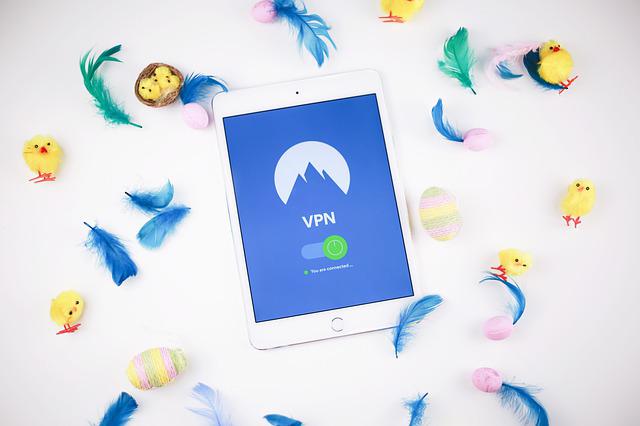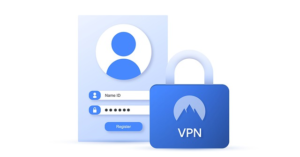
Macrovector/Shutterstock.com
VPN providers would have you believe that VPNs are a one-stop cybersecurity shop that will solve all your worries about being tracked or hacked while browsing. That’s not entirely true, though. VPNs aren’t your only option when trying to cover your digital tracks, either.
How VPNs Work
To better find and understand VPN alternatives, we need to quickly go over how a VPN works. A virtual private network lets you reroute your connection so that your IP address, and thus virtual location are changed.
This is great if you want to get around regional restrictions or blocks, whether put up by a government (like China’s Great Firewall) or something more mundane, like Netflix locking its regional libraries. VPNs also come in handy when you’re on vacation and your bank only allows domestic IPs to access its site.
Besides rerouting your connection—which is a far from unique ability, as we’ll soon see—VPNs also encrypt the connection in what’s called a VPN tunnel. This is what really sets VPNs apart from similar technology, as the VPN tunnel lets you mask that you’re changing your IP and thus makes the connection harder to detect.
Things Only a VPN Can Do
Because of the way they work, there are things only VPNs can do. For example, unlocking streaming services like Netflix or Hulu can only be done by a VPN. No other method will work. Much the same goes for torrenting, too.
Why Would You Want to Use VPN Alternatives?
Of course, if VPNs can do all that and have unique abilities, to boot, you may wonder why you would want to use anything else. The best reason is also the simplest: money. While some VPNs are pretty cheap—there are also free ones, though most of those are scams. Even at the lowest price point, you’re going to be spending at least $40-$50 per year to use one. It can also go higher than that. For example, ExpressVPN costs $100 per year.
The other reason is that VPNs are a bit of a black box and it’s hard to gauge exactly what happens with your data. Though most services claim to be no-log VPNs that don’t keep any of your data, there’s been enough cooperation with law enforcement over the years to make even the most trusting among us a bit leery of such claims.
The Best VPN Alternatives
Thankfully, there are plenty of ways to make use of VPNs’ most important functions—as much as we appreciate entertainment, it’s not exactly vital to life—for either free or at least at a much lower cost. Data collection is also a lot less likely with these solutions.
Proxies
The most basic of all VPN alternatives is the proxy, which is a very simple program that relays your connection and that’s about it. When comparing proxies vs. VPNs, the biggest difference is the complete lack of encryption in proxies, which makes them vulnerable to interception.
While they’re useful to unblock YouTube and other low-security sites, they do a pretty poor job of anything else. Their biggest asset is that they’re free to use, though be careful which ones you use as some may be used for data collection. As for suggestions, our favorites are HideMyAss’ proxy or Hide.me’s proxy.
Shadowsocks
A step up from regular proxies is Shadowsocks, which through the use of a specific type of encryption can be a great way to escape censorship. Though it’s mostly used as a way to get past China’s Great Firewall, it can also be used to avoid other blocks. However, it usually fails to get past Netflix’s blocks and should never be used for torrenting as its encryption isn’t suited for that.
Shadowsocks isn’t entirely free, though: to set up Shadowsocks, you’ll need to have some kind of server of your own. However, using a program called Outline, you can share the server with your friends, which should hopefully help defray the cost a little.
SSH Tunnel
The third VPN alternative is an SSH tunnel, which is interesting because it can encrypt your connection much the same way a VPN can, but won’t change your IP address like proxies or Shadowsocks do. Because of that, it won’t let you crack any blocks, but it’s a solid way to transfer data securely if your VPN isn’t working—which is just one of the cool things you can do with an SSH server.
The big downside to SSH tunneling, besides not changing your location, is that it can be tough to set up, especially if you don’t have any experience with networking tech. Still, though, it’s something to keep in mind if you ever need to secure a network on the cheap.
Tor
Our penultimate, and in some ways best, VPN alternative is Tor, The Onion Router. Unlike a VPN, which routes all your internet traffic to a single server, Tor uses a massive network of servers around the world to bounce your connection around, making it so no single server has all your data.
As each server is shielded from the next, Tor is a great pick for anybody worried about VPNs’ possible data collection, yet still wants the security of VPNs. A big downside to Tor, though, is that it still struggles with blocks like that of Netflix—and the fact that bouncing your connection around slows it down considerably. There’s no way around it: Tor is slow.
Decentralized VPNs
Our last entry is an interesting hybrid of VPNs and Tor. Called decentralized VPNs, they would combine the security and speed of VPNs with the anonymity of Tor. However, currently very few are operational, so right now they’re a bit of a hypothetical. However, if decentralized VPNs end up being like what is promised, then we may end up with the perfect VPN alternative; only time will tell.
Until then, you can either use one of the alternatives we’ve outlined above—or, for those who like streaming or torrenting, use a VPN.
Source: https://www.howtogeek.com/802198/vpn-alternatives-what-can-you-use-besides-a-vpn/


